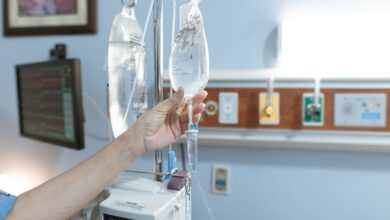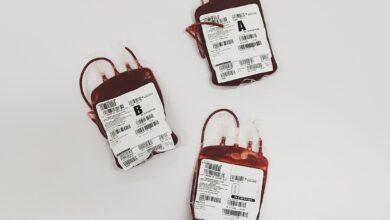
Possible complications of diarrhea
Dehydration and all the problems it can cause are the main complications that can occur and that it is important to try to avoid.
In addition, people on antibiotic therapy may see their diarrhea worsen if they contract an infection with Clostridium difficile bacteria. This most often occurs in a hospital setting.
The C. difficile bacterium takes advantage of a weakening of the intestinal flora to grow in the intestines. It secretes 2 toxins (A and B) which cause significant diarrhea by accelerating intestinal transit and reducing the absorption of liquid in the intestines.
Thus, once antibiotic treatment is completed, if the diarrhea is severe or persists, a doctor should be consulted without delay.
Up to a third of antibiotic-associated diarrhea is caused by this bacterium: a small proportion of it gets worse.
When to consult for diarrhea?
See a doctor as soon as possible if any of the following signs appear:
- very profuse diarrhea (more than 10 stools per day) that persists for more than 48 hours;
- signs of dehydration, especially in a young child or an elderly person (see below);
- a fever of 38.5°C (101.5°F) or higher;
- blood in the stool;
- severe abdominal pain;
- chronic diarrhoea.
All individuals can be affected by diarrhea.
Discover the symptoms, people at risk and risk factors to understand everything about this disease.









